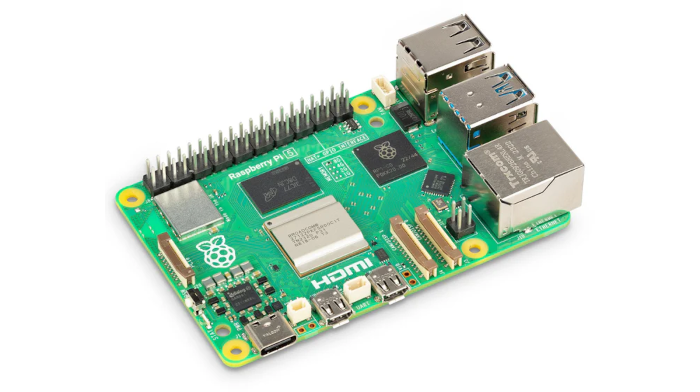Linux offers a wide array of music players. Our current recommended open source music players are fooyin, Tauon, and musikcube. The first two sport a graphical user interface, the latter is a terminal-based affair. All three are superb music players offering all the essentials you want from a music player such as gapless playback, support for a wide range of audio formats (including FLAC), playlists, and much more.
None of these music players are available from Raspberry Pi OS’s package manager. All testing is with the latest version of Raspberry Pi OS which is based on Debian 13.
fooyin
fooyin is one of the shining lights in the open source world. The developer of fooyin should be warmly congratulated on writing a truly memorable music player which ticks just about every box. Luke, our multimedia expert, rates it hugely, and I can only concur with his opinion.
fooyin’s developer provides deb packages but not for ARM. There is a Flatpak available but if there’s a quick alternative way of installing software, I try to avoid Flatpaks on the Raspberry Pi 5 if only because they are wasteful of disk space. That’s something that can be a precious commodity with a single board computer particularly if you’re booting it from a small microSD card.
The developer provides excellent installation instructions on his GitHub page. Install the dependencies listed in the Debian/Ubuntu section and build the program. Bear in mind the RPI5 isn’t quick at building source code. Version 0.9.2 takes 17 minutes 20 seconds to build on the RPI5. Contrast that with a capable mini PC such as the BOSGAME M4 Plus. With the M4’s AMD Ryzen 9 7940HS processor, building fooyin only takes 1 minute 48 seconds.
But the long build time isn’t a big issue unless you’re constantly building the program. What really matters is how the music player actually performs on the RPI5.
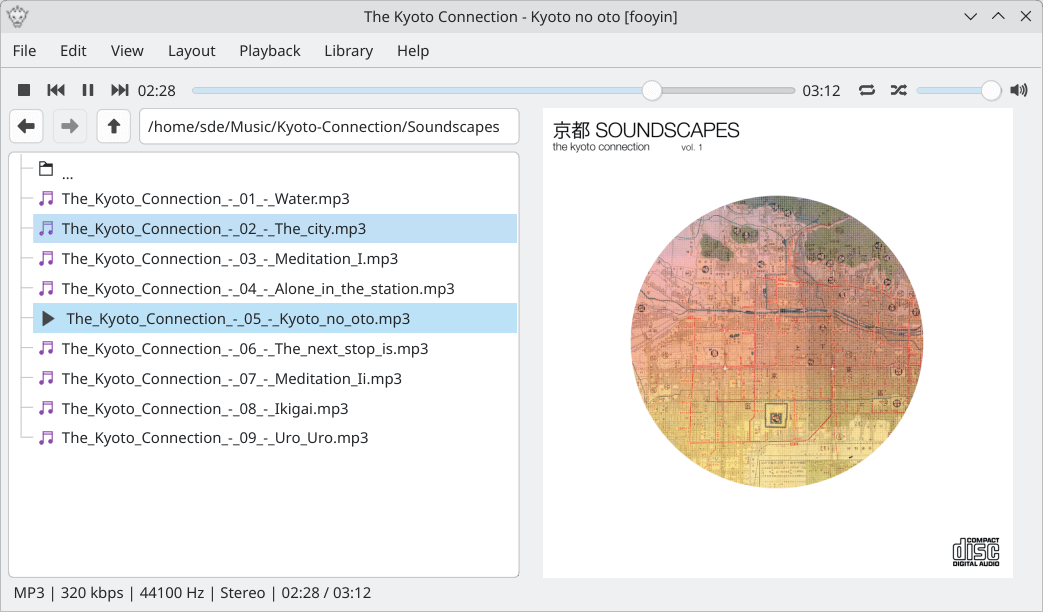
fooyin is a pretty lightweight music player despite its great set of features. It performs really well on the RPI5. And if you’re passively cooling the RPI5, such as with this case, it makes for a great music player.
Tauon
Tauon (formerly known as Tauon Music Box) is another special open source GUI music player for Linux.
Like fooyin, there’s no ARM deb package available. I don’t recommend building the program on the Pi 5. Instead I recommend installing the Flatpak version despite my reservations about wasting disk space.
Even if you’re not interested in using Tauon, it’s definitely worth setting up Flatpak on the Pi 5. There’s so much great open source ARM-based software available to install via Flatpak these days.
Install the Flatpak package:
$ sudo apt install flatpak
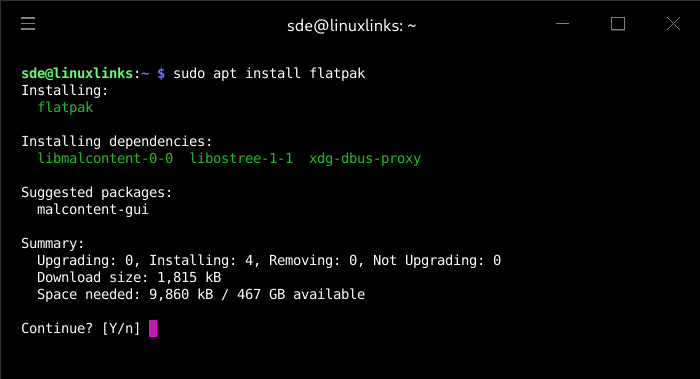
Add the Flatpak repository:
$ flatpak remote-add --if-not-exists flathub https://dl.flathub.org/repo/flathub.flatpakrepo
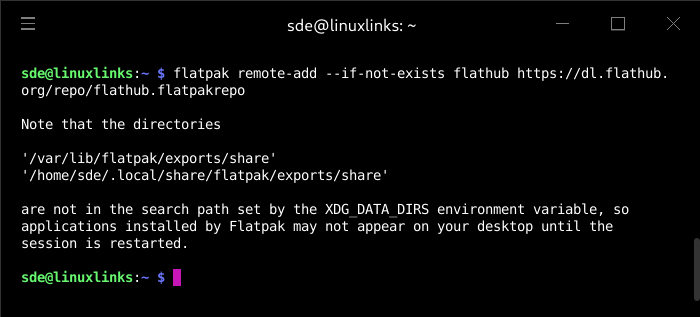
Restart the Pi 5.
Now we can install Tauon with the command:
$ flatpak install flathub com.github.taiko2k.tauonmb
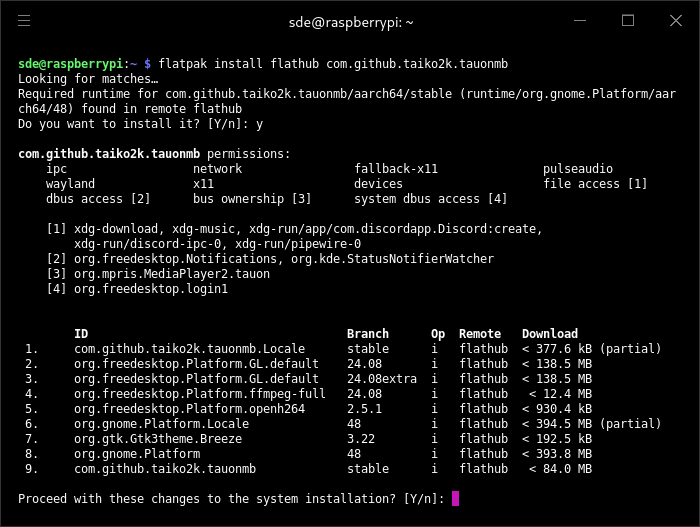
A menu entry is automatically added once the installation is completed.
Here’s Tauon running. I’ve added a small collection of music albums published under a Creative Commons license just to give a flavour of the interface.
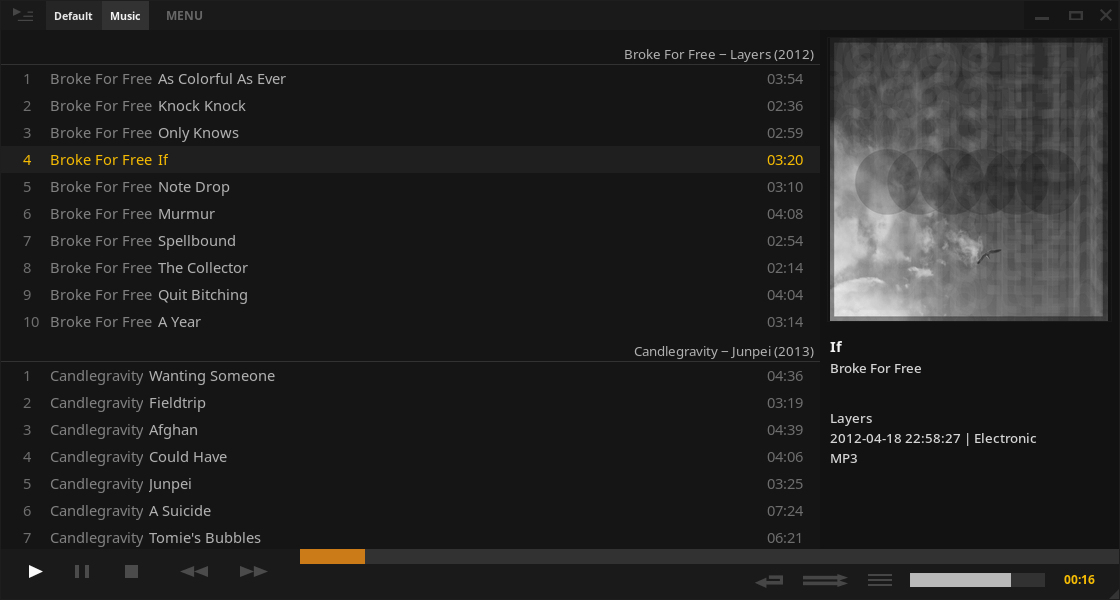
Tauon has an excellent feature set. It offers functionality that’s not available in fooyin such as internet radio support.
musikcube
musikcube is another awesome gapless music player. Unlike fooyin or Tauon, it’s a TUI-based program.
musikcube’s developer provides ARM packages. The Pi 5 runs armv8, but the deb package is 32-bit and the developer doesn’t provide a 64-bit package. There’s no Flatpak available, nor a snap. In this situation, let’s try a manual build.
Install the program’s dependencies with the command:
$ sudo apt install build-essential clang cmake libogg-dev libvorbis-dev libavutil-dev libavformat-dev libswresample-dev libncursesw5-dev libasound2-dev libpulse-dev pulseaudio libmicrohttpd-dev libmp3lame-dev libcurl4-openssl-dev libev-dev libssl-dev libtag1-dev libopenmpt-dev
Many of these packages are already installed on my Pi.
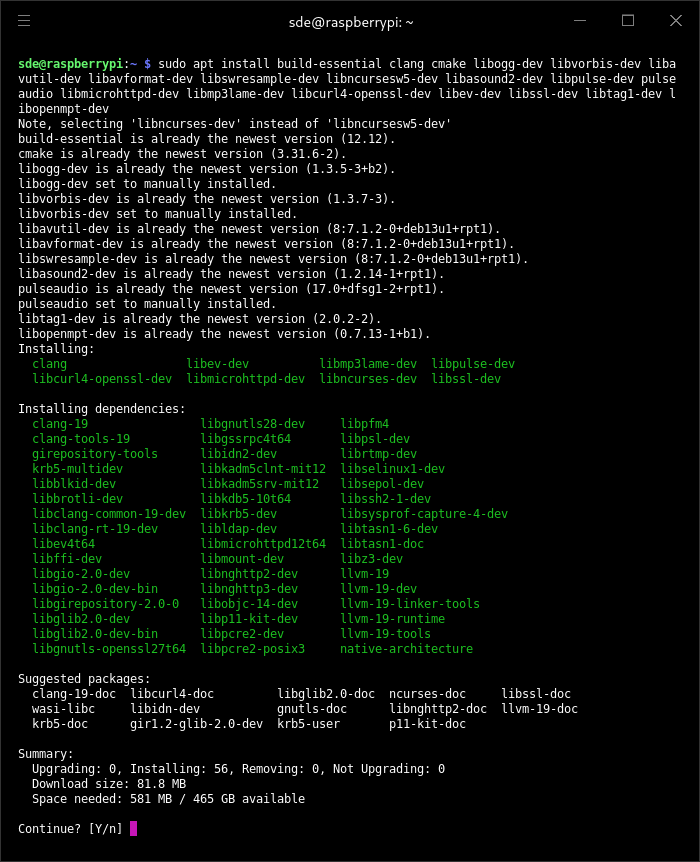
Clone the project’s GitHub repository.
$ git clone https://github.com/clangen/musikcube.git --recursive
Change into the newly created directory.
$ cd musikcube
Now we can build the program.
$ cmake -G "Unix Makefiles" .
$ make -j4
The -j4 speeds up the conpile time by using all four of the Pi 5’s cores.
The build completes successfully. I prepended time to the make command so that you can see it takes a little over 7 minutes to build.
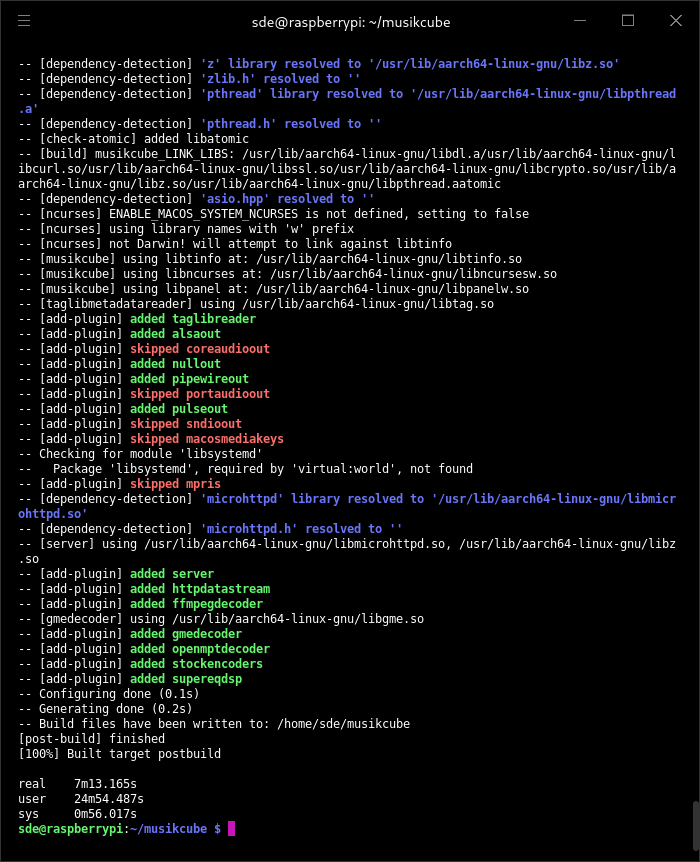
Now I can install the software.
$ sudo make install
The binary is installed in /usr/local/bin/
If you’ve got an RPI5 with low memory, musikcube may be the best for you. It has an extremely small memory footprint with ps_mem reporting memory usage to be around 57MB.
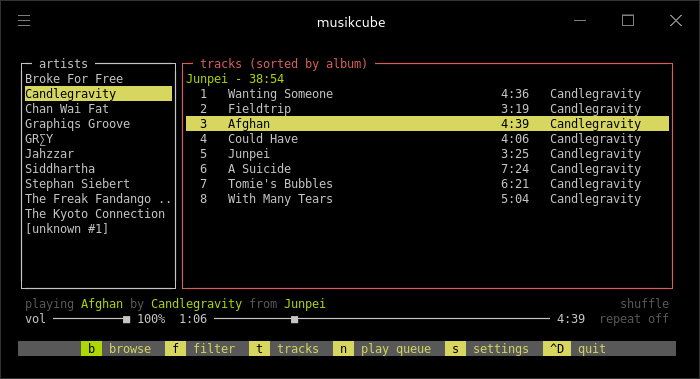
cmus
cmus is another TUI-based music program that’s worth checking out.
There’s a Flatpak available.
$ flatpak install flathub io.github.cmus.cmus
There are lots of other good music players that will run on the Pi 5. But I don’t need to look any further.
All articles in this series:
| Raspberry Pi 5 Series | |
|---|---|
Hardware | |
| iRasptek Starter Kit | All the kit you need to get started with the Pi 5 |
| Pironman 5 Case Review | Transform the Pi 5 into a beautiful desktop mini PC |
| Passive Cooling the Pi 5 | Passively cool your Pi 5 the right way. Silent yet cool |
| Benchmarking | Benchmarking the Pi 5 against an Intel N100 mini PC |
| Overclocking | Let's increase the clock speed of the BCM2712 SoC |
| Power Consumption | Compare the power consumption of the Pi 5 with Intel Mini PCs |
| 2.5Gbps Networking | Improving the wired performance of the Pi 5 |
| WiFi | Improve WiFi performance of the Pi 5 |
| Desktop PC | Is the Pi 5 good value compared to an Intel N100 Mini PC? |
Configuration | |
| raspi-config | Useful text-based tool to configure the Pi 5 |
| PiGro | GUI tool that streamlines the process of managing the Pi 5 |
| Increase Swap Memory Size | Increase the swap size from 512MB to 2GB |
| ZRAM swapdrive | Simple script to use a ZRAM swapdrive instead of a swapfile |
Software | |
| Installing Software | Different ways to install software on the Pi 5 |
| df snap pollution | Replace df with dysk |
| Ollama GUI | Running Large Language Models on the Pi 5 |
| Music Players | GUI and TUI music players explored |
| Internet Radio | Exploring the best options for both GUI and TUI software |
| Many software articles are planned. Stay tuned! | |

